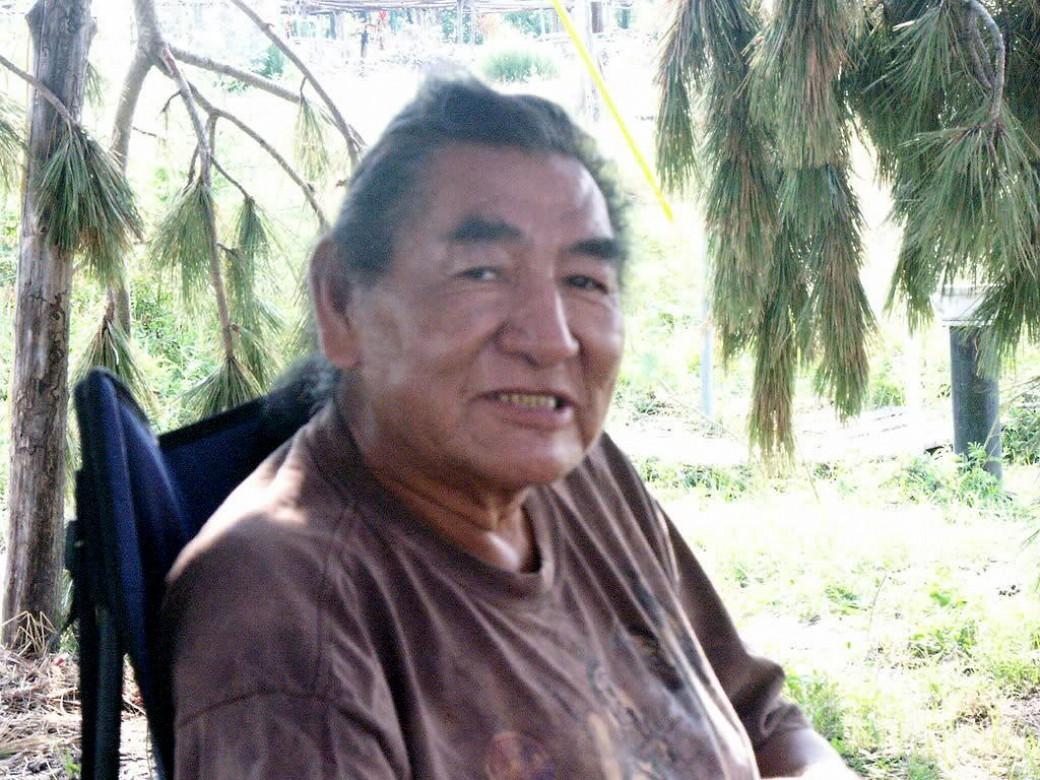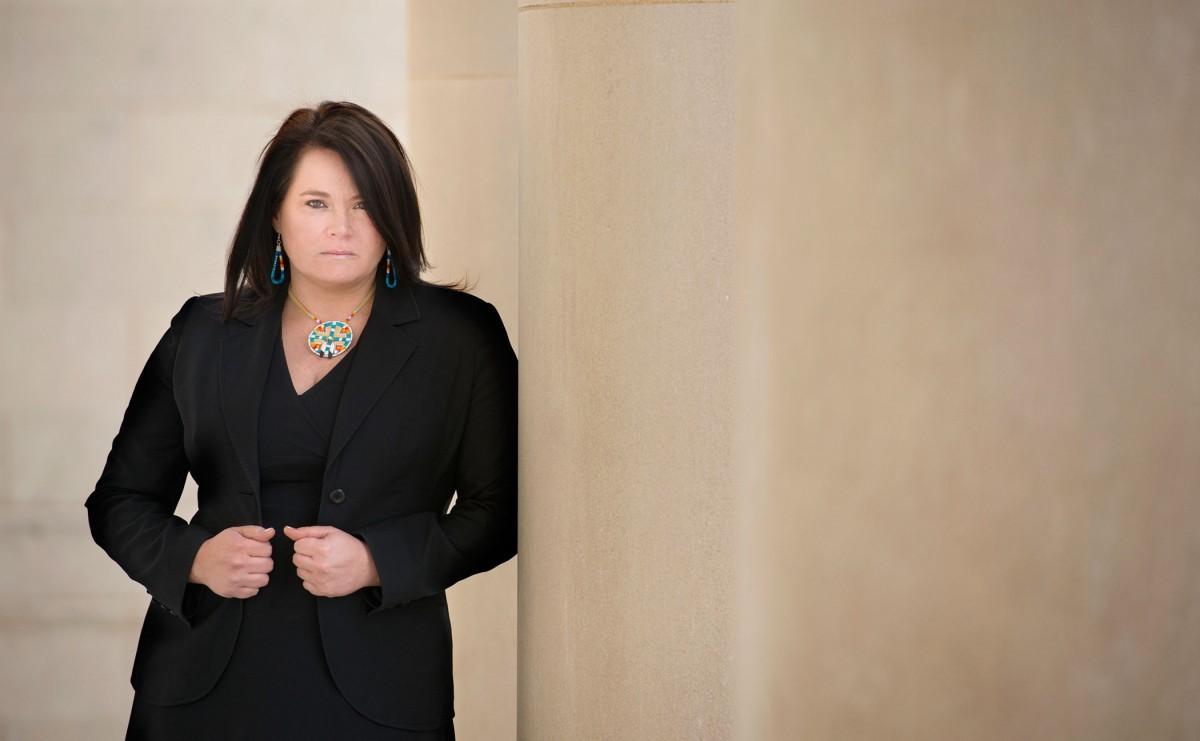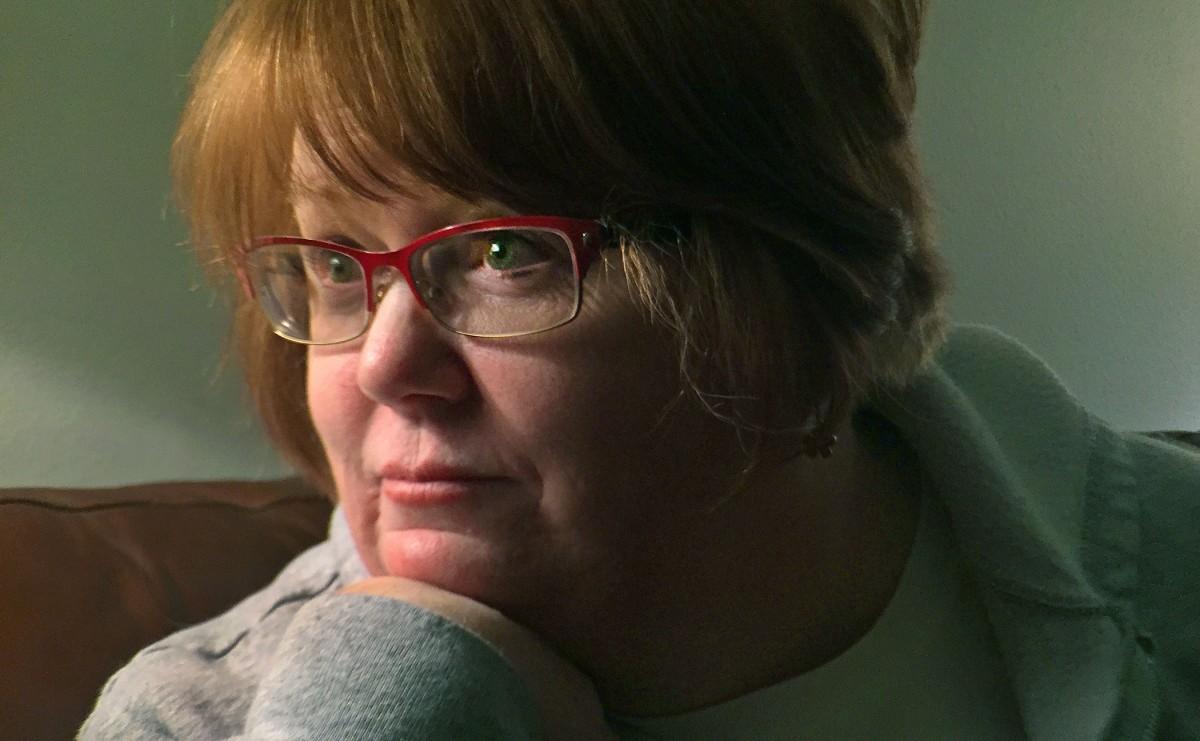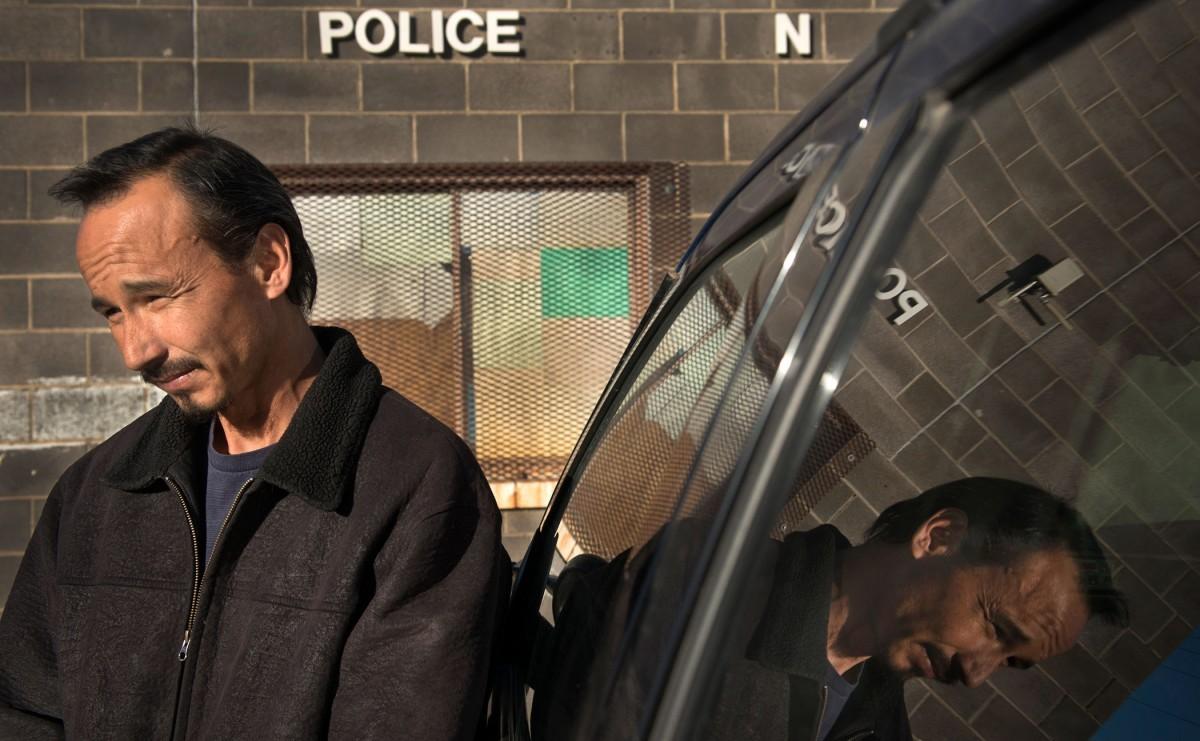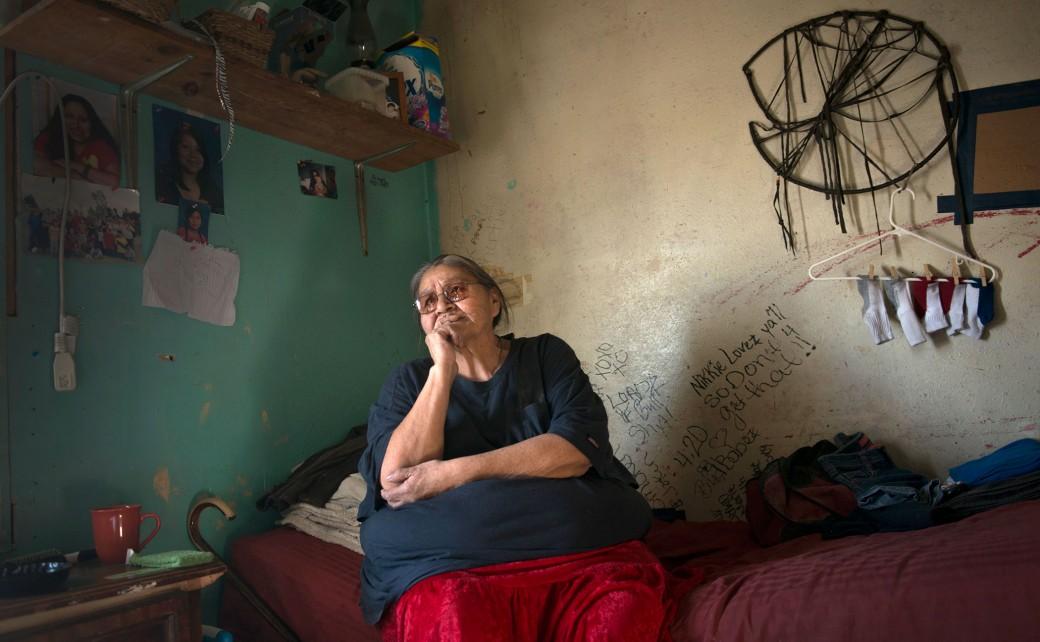|
A man of healing, a saga of suffering
By Sari Horwitz
[with video] In WANBLEE, S.D. He was a world-famous medicine man, a traditional healer and spiritual leader. Followers would travel long distances to this tiny hamlet on the Great Plains to be in his presence and pray in the darkness with him in a sacred sweat lodge. But Charles Chipps Sr., a medicine man on the Pine Ridge Indian reservation, had a dark secret, federal prosecutors say. For years, they allege, Chipps sexually abused and raped girls, including some of his own daughters and granddaughters; many of the alleged victims were younger than 12 and several were as young as 5. A girl from Colorado whose aunt brought her to meet Chipps for spiritual guidance committed suicide after revealing the abuse she allegedly suffered. The sexual abuse of children has long been regarded as a rampant if largely unspoken problem on Native American reservations, in part a legacy of a boarding school system that was designed to assimilate students and subjected them to widespread sexual, emotional and physical abuse, according to Native leaders and prosecutors. But Chipps’s case, as described in court testimony, is among the most shocking — entailing allegations that a respected elder sexually abused at least six girls. It is also an illustration of the ways in which the federal, state and tribal legal maze that governs Indian country can complicate the pursuit of justice and, in Chipps’s case, allowed him to go free for three years after he was first jailed. Child sexual abuse on the reservations is at the root of the many problems that follow for Indian children — depression, alcohol and drug abuse, juvenile detention and suicide, according to Indian country experts. The challenge of getting victims to speak out — common in child sexual assault cases anywhere — is exacerbated by the close-knit nature of the remote communities where they live. The U.S. attorney for South Dakota, Brendan V. Johnson, said that sexual violence is one of the most common criminal offenses on the nine reservations where he shares criminal jurisdiction with the tribes, but it is extremely difficult to bring charges. “Victims are placed under tremendous pressure by family members and friends to recant their stories,” said Johnson, who declined to discuss details of the Chipps case. “The complaint will come in, the victims will be forensically interviewed and will provide us with specific facts about what happened and then, months later, will recant their stories.” The allegations against Chipps have torn his family apart, with some relatives and friends supporting him and others shunning him. Now 67, the medicine man has pleaded not guilty. His lawyer says he is too sick and mentally incompetent to stand trial. In a brief interview, he declined to discuss his client’s case further.
The little blue house
The village of Wanblee, population approximately 725, is located on the northeastern edge of the Pine Ridge reservation, where 87 percent of the tribe is unemployed. It has a tiny post office, a small convenience market, a school and a health clinic, but little else. In a place of desperation, Chipps was a source of healing. He inherited his spiritual position in the tribe and became a renowned medicine man on Pine Ridge and beyond, even releasing a CD of ceremonial songs. He made his home about eight miles out of town in a family compound in the shadow of the Eagle Nest Butte. It was in a little blue house and a log cabin in that compound that Chipps abused girls and young women who came to him for spiritual guidance, according to the indictment against him and other court documents. He also allegedly sexually assaulted them on his nearby sacred ceremonial grounds, forcing them to disrobe and engage in sexual acts in the darkness of the sweat lodge. From 2002 to 2007, according to court documents, the South Dakota Department of Social Services and the tribe’s social services agency received nearly a dozen reports in which minors told people close to them that they had been sexually assaulted by Chipps. In most cases, the young accusers failed to repeat the claims before investigators. In June 2009, a rookie Oglala Sioux tribal police officer from Wanblee, Samuel Pretty Bear Sr., responded to a call at the compound from Chipps’s son. The son said he had long feared his father, Pretty Bear recalled, but had information he wanted to share. “He explained to me what was going on out there, and it wasn’t right,” Pretty Bear said in an interview. “He has kids of his own, and he was afraid for their safety.” Pretty Bear removed four of Chipps’s grandchildren from the compound. A few days later, three more children were removed. Some were placed into foster care, and others went to live with other family members. “Don’t tell them nothing about us,” Chipps warned one girl, according to court testimony from a state counselor who talked to the girl. About a month later, Chipps was arrested on tribal child sex abuse charges and placed in a Pine Ridge jail. Then, nothing happened. “We did our report,” said Pretty Bear. “We did what was asked of us as police officers and never heard anything about it after that.” Although tribes have their own governments and court systems, the responsibility for prosecuting felony crime, such as sexual assault and rape, generally falls to the Justice Department. In this case, the U.S. attorney’s office for South Dakota opened an investigation but did not have enough evidence to bring federal charges. Tribal authorities tried to obtain the limited evidence that federal investigators had, but federal officials would not share it. In 2010, after a year with no charges by the U.S. attorney’s office — and no access to any evidence the FBI had collected — tribal law required that Chipps be let go. He was free for another three years.
Crazy Horse School
Beth Carnes, a non-Native counselor at Crazy Horse School in Wanblee, had a gentle manner and a way of talking and listening respectfully to children. One day, about a year after Chipps was released from jail, she began talking with a 13-year-old girl who had been acting out. Something was deeply wrong. “I said, wouldn’t it feel better if you just told Ms. Beth everything that’s inside and you got it out?” Carnes later testified in court. “And she said yes. And we went in my office, and she told me the whole thing.” The girl told Carnes that the medicine man had been sexually abusing her since she was 5. She also said Chipps had recently insisted on seeing her, which she said was a violation of an order from a tribal agency that he not have any contact with any of the alleged victims. As a school counselor, Carnes was legally obligated to report what she had been told. She did. At about the same time, Heather Dawn Thompson, a member of the Cheyenne River Sioux tribe of South Dakota, joined the U.S. attorney’s office in Rapid City. Thompson said she soon became an expert in sexual abuse cases because there were so many of them. “There are a variety of historical reasons that people point to for this cycle in Indian country, one of which has to do with the federal policy of removing children from their homes and sending them to boarding schools during the late 1800s and much of the 1900s,” Thompson said. Many studies tie sexual abuse to the intergenerational trauma that began in the secular and church-run boarding schools that Indian children were required to attend. Court documents and lawsuit settlements reveal how the boarding schools, especially in places like South Dakota, were centers of widespread sexual, emotional and physical abuse. Many of the children who attended the schools are the parents and grandparents of today’s Native American children. “There were individuals who were willing to move out in the middle of nowhere in order to work at boarding schools with these children and there were some who had a pre-disposition for child sex abuse and many of the children were sexually abused,” Thompson said. “Unfortunately, that has become a cycle that was passed down from generation to generation. You compound that with the poverty, socioeconomic and isolation issues in Indian country and unfortunately that cycle has not yet been broken.” Armed with new information from Carnes, Thompson and a South Dakota FBI agent, Rick Lauck, moved aggressively on the Chipps case. Soon, more young people claiming they had been victimized came forward. On July 16, 2013, a federal grand jury indicted Chipps on 15 counts of rape, sexual abuse and intimidation of six minor victims. Besides the children in the indictment, older victims from South Dakota and other states came forward and alleged they were sexually abused by Chipps when they were younger, according to a filing by the U.S. attorney’s office. GiftingIn a federal courtroom in Rapid City last year, Chipps was brought before a judge to determine whether he could be released pending trial. An older relative testified on his behalf and said he could live with her if he was released. Glenyce Bean, a psychotherapist who had come to his Sundance ceremonial grounds and sweat lodge for years, also testified in his support, saying that she had taken care of him in recent years. “I know him as a ceremonial leader,” Bean said. “People [look] up to him and he helps people. . . . He’s uncle or grandpa to almost everyone. I know him to be helpful. He has provided just lots of healing for many, many people, myself included, over many, many years.” Tribal officer Pretty Bear testified, as did Carnes, the school counselor. Then, Hollie Strand, a forensic interviewer from the Child Advocacy Center of the Black Hills in Rapid City, took the stand. She recalled being told by children who spent time with Chipps that he bought them food and gifts — a way, she said, that sexual predators often intimidate their victims and make them feel more reliant on them. She then described in graphic detail the sexual acts that the children said Chipps forced them to do. He would make one kiss him and another perform oral sex at the same time. Then he would snap his fingers and force them to trade places. One time he made two girls watch while he had sex with another one. Sometimes, he hit them hard with a stick. He warned them that if they told anyone, “he would whip them,” Strand testified. Thompson, in an interview, would not discuss the case. In a court filing, however, she alleged Chipps raped one girl while two of the other girls were in his bed during a trip. She also alleged that, in another instance, one girl opened a bedroom door and found Chipps leaning over a partially unclothed girl with another girl nearby crying. Several of the alleged victims would later tell officials that his wife knew about the abuse before she died, according to a detention order, though some said she was too scared to come forward. The judge ruled that Chipps be held pending trial. Chipps has since been moved to a federal prison in Missouri. If found guilty, he faces the possibility of life in prison and a fine of up to $250,000.
Sweat lodge
On a recent chilly December afternoon, Lena Chipps, 62, walked through the windswept grasses on the rural grounds outside of Wanblee where her brother-in-law, Charles, for more than 20 years ran one of the most sacred Oglala Lakota Sioux ceremonies. She says she did not know about the allegations against Chipps until he was first arrested five years ago. “When I first found out about Charles, I wanted to get a gun and go shoot him,” she said. “For what he did to all these kids.” Lena Chipps said she has been shamed by the allegations involving her family — allegations that she believes tarnish the reputation of the tiny Oglala Lakota community and Native American culture more broadly. “We’re not like that,” she said with disgust. Johnson took over the case from Thompson, who left the office, and in a rare move for a U.S. attorney decided to personally prosecute the Chipps case. Chipps’s attorney, Terry L. Pechota, says that his client is in bad health — diabetes, high blood pressure and congestive heart failure — and is not mentally competent to stand trial. “I have found defendant completely unable to recall things in the past,” Pechota, who has known Chipps for 30 years, wrote in a court filing. “He would not be able to take the stand because he has no recollection of events.” The children in Wanblee remember everything, Lena Chipps said. Among them is her granddaughter, who has struggled in life as a result of the trauma she suffered, Lena Chipps said. Another of her teenage relatives twice tried to kill herself. There are few mental health resources in Pine Ridge — or any reservation — to help children like them. “Some of these kids don’t care now what happens to them,” she said. Lena Chipps walked unsteadily with her cane past several of the dome-shaped lodges on the ceremonial grounds. In the winter sunlight, the site looked abandoned, but she said the sweat lodge ceremonies are still being performed. Inside the lodges are stones that are heated in a fire and placed in a central pit. Water is poured on the stones. Prayers and traditional songs — which Charles Chipps used to sing — are offered in the Lakota language. On the grounds that day were white antlers, which are used to move the hot stones into the lodge. Lying on the ground, mostly covered by dirt, was a tiny turquoise and purple braided bracelet, tiny enough to fit around the wrist of a child.
|
.
Any original material on these pages is copyright © BishopAccountability.org 2004. Reproduce freely with attribution.
